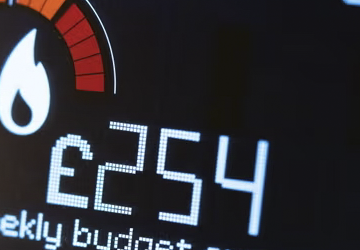Higher energy bills forecast for UK households next year
UK households could face higher energy bills next year, after a leading forecaster said electricity market prices will rise in 2024 – and remain well above pre-energy crisis levels for the rest of the decade.
Analysts at Cornwall Insight predicted that Britain’s wholesale power prices would rise from an average of £96.64 per megawatt-hour so far this year to £129/MWh next year, due to higher gas prices triggered by the war in Ukraine.

The analysis was undertaken based on the commodity futures markets at the end of September. Since then, gas and electricity markets have climbed further due to fears that the Israel-Hamas war could pose a risk to oil and gas supplies.
Electricity prices were also forecast to stay elevated until the end of the decade, remaining at least 60% higher than they were in 2021 before the global economic recovery from the Covid-19 pandemic caused markets to climb.
The analysts expect that as more renewable energy connects to the grid, reducing reliance on gas-fired power plants, market prices will begin to fall. However, they will stay above £80/MWh – well above pre-crisis levels.
Tom Edwards, a senior modeller at Cornwall Insight, said slowing the UK’s shift towards renewable energy could keep energy bills higher for longer. Cornwall’s latest report found the UK was likely to miss its target to increase offshore wind fivefold to 50GW by 2030 due to rising costs in the supply chain.
“Rolling back our net zero ambitions and slowing our transition away from fossil fuels is likely to be a costly delay that will not only see us fall further behind in decarbonising the country but will leave consumers shouldering the prolonged burden of high prices,” Edwards said.
“Without a resolute commitment to a greener and more sustainable future, achieving net zero emissions and pre-crisis energy bills becomes an increasingly elusive goal,” he added.
Cornwall forecasts that by 2030 offshore wind will make up 26% of the UK’s installed electricity capacity, up from about 13% today. Meanwhile, the share of gas power plants will fall from 27% of the UK’s total power capacity to 13% by 2030.
“We can see the country is travelling in the right direction towards a renewables-based electricity system. However, our estimates continue to show it is simply not fast enough to deliver on government targets,” Edwards said.
The cost of gas and electricity on the wholesale energy markets makes up just over 50% of the typical household bill. The rest of the bill includes charges to pay for grid upgrades, which are needed to connect new renewables, and the cost of government policies such as supporting low-carbon energy projects.
“Time is of the essence, and it is critical that the government reassess its commitment to accelerating renewable energy adoption, which includes being more flexible when setting auction parameters to reach the UK’s offshore wind goals,” Edwards said.



